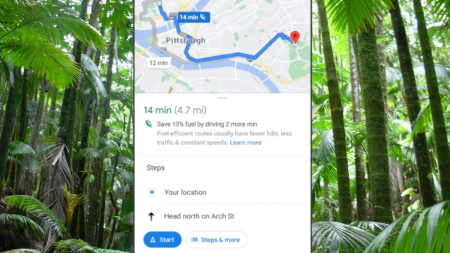More than 90 percent of internet users worry about their passwords being hacked. At the same time, 53 percent of them rely purely on memorization to handle their credentials. Poor password habits like this will put you in danger of losing your personal information in a blink of an eye.
In the last few years, cybercrime has skyrocketed to new heights. Tech companies are going the extra mile to create a more secure environment by implementing new technologies for your credentials. One of the most popular new technologies that have entered the security game is biometrics. It includes the usage of human physical characteristics for identification and access control. Most of our devices have biometric authentication features like fingerprint or facial scans, giving them an additional security layer. Since human physical features are unique, it’s much harder to spoof. Moreover, biometrics is not the only player in the upgraded security game. Artificial intelligence or AI has entered the scene; according to some predictions, it will replace biometrics and completely take over the cybersecurity industry in the next few years.
Five ways to secure your credentials

Image from Unsplash.com
Poor password practices have sunk some pretty big ships. Combining your pet’s name with your child’s birthday is memorable, but it’s also predictable and relatively easy to break. Hence, choosing a bulletproof password should be the first step in maintaining good cyber hygiene. Here are a few elements of a strong password you should beat in mind:
● It has more than eight characters
● It contains a combo of upper and lower case letters, numbers, and symbols
● It doesn’t include any personal names, pet names, etc.
● It includes an uncommon phrase that is easy to remember (e.g., purple sushi)
Use a different password for every account
Besides selecting weak passwords, people tend to use one password across multiple accounts. Habits like this could endanger your data. Suppose you use the same password for your personal and professional accounts. In that case, it could pose a severe threat to the company you work for. If you wouldn’t use a multi-purpose key to unlock every door in your house, why would you use the same concept for your passwords?
These days, your cybersecurity strategy needs to operate like an army tank. You need strong protection that’ll shield your movements from point A to point B and keep you safe and sound no matter what’s happening on the battlefield. This level of security can be achieved by using a virtual private network (VPN). A VPN encrypts all of your data traffic, including your passwords. It hides your IP address and location and grants you more freedom while browsing the web.
Use multi-factor authentication
Multi-factor authentication or MFA includes using several components to protect your credentials and secure your accounts. It commonly uses a standard password with some biometric factor like a fingerprint and an SMS verification code. The system is based on the assumption that it’s improbable that the potential intruder can collect all identity factors from impersonating you. MFA is easy to use, and it provides you with personalized, layered protection on multiple devices.
Since many of us can barely memorize an eight-item grocery list, it’s unlikely that we can handle all of our credentials without some help. Password managers are designed to store and encrypt your passwords, making them unreadable to anyone trying to get their hands on your data. There are a few password managers, but the most commonly used ones store data in a cloud, allowing easy access from several devices.
Top 3 security tools for protecting your online activity

Image from Pixabay.com
If you’ve already mastered all basic security measures and want to implement additional tactics, here are some of the best tools you can incorporate into your strategy:
Given that encryption has become synonymous with security, we now have various tools using this technology to add more protection. ProtonMail is a webmail provider that uses end-to-end encryption to keep the conversation between end-users private. Anyone who tries to infiltrate the conversation and eavesdrop will find only a pile of unusable gibberish.
Encrypted messengers like Signal are an excellent option for those wanting more privacy and protection. Signal is easy to set up and use, and most importantly, it doesn’t store your metadata. The only information it stores is a phone number necessary for setting up your account. All of your messages will be encrypted, but note that Signal doesn’t encrypt messages exchanged with those who don’t use the app.
Network traffic analysis tools
To keep up with your online traffic, start using network traffic analysis tools. This way, you’ll have insight into the real-time and historical data. You’ll have a better grasp of what is happening within your network. These tools can detect intrusions and vulnerable protocols to prevent possible malfunction.
Cybercrime has many faces – from email scams and malware to data breaches, the competition for your data is ruthless. With passwords becoming less secure, new cybersecurity challenges require additional security measures. The best option would be to let a password manager take care of everything, but if you’re still not ready to switch, put more thought into creating your passwords and keeping your credentials safe. Furthermore, consider shifting to encrypted tools to enhance your online security and privacy.










